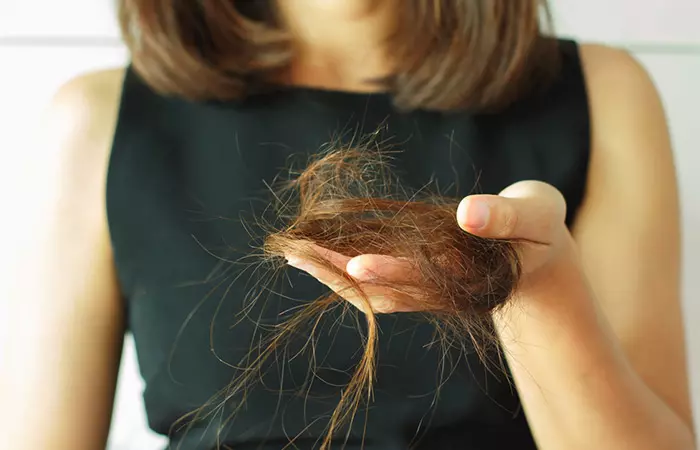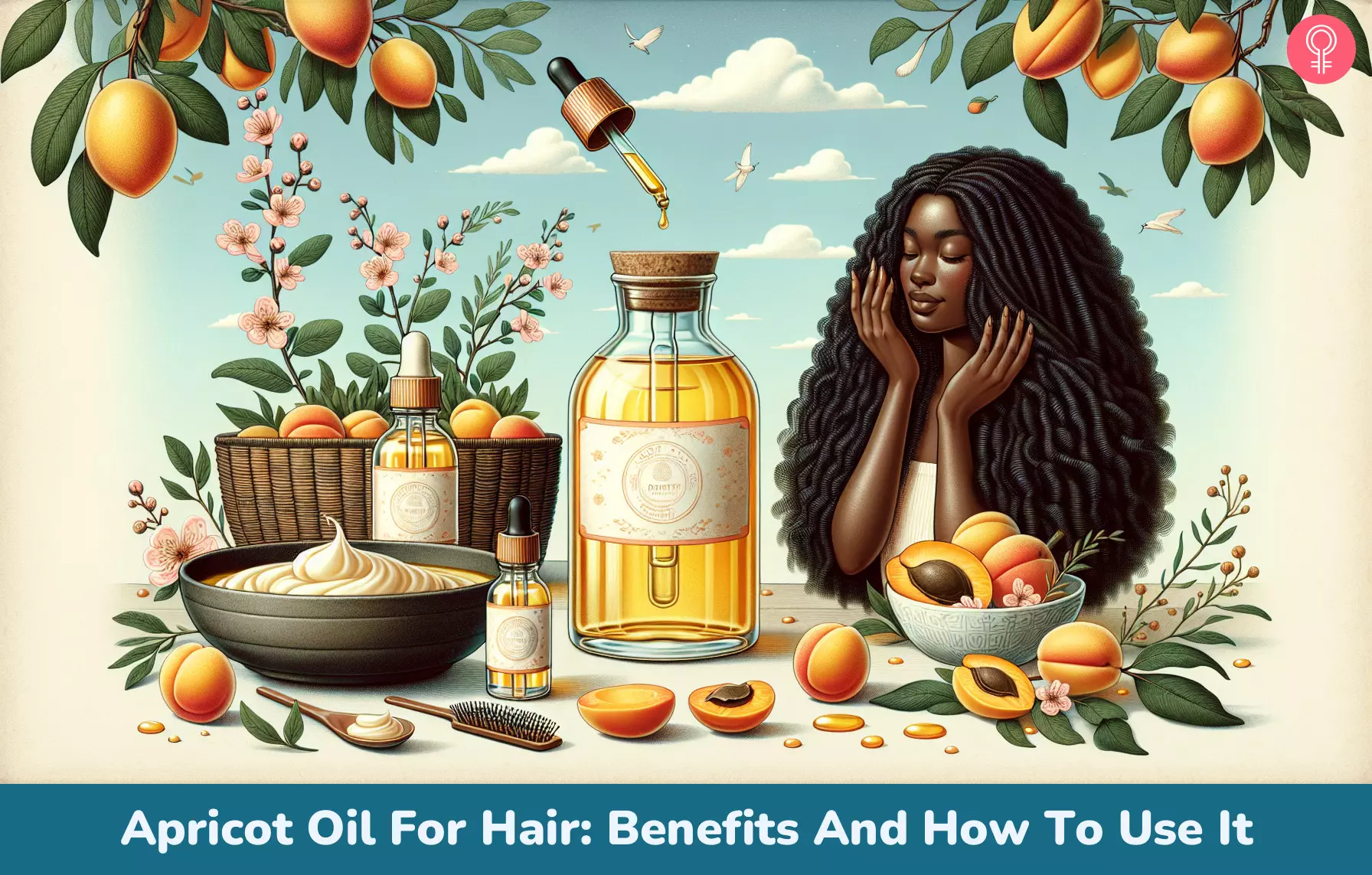Benefits Of Apricot Oil For Hair
Apricot oil is extracted from the apricot kernel or pit and has medicinal and pharmaceutical uses (1). It is a clear oil that is yellowish-orange. It can benefit hair in various ways. What Are Its Benefits? Apricot oil help with reducing hair fall and promotes hair growth. Who Can Use It? If you have curly or coily hair, apricot oil can be the most beneficial oil for you. How Often? You can apply it everytime you wash your hair. Caution Sometimes it can cause irritation and redness o the scalp, so a patch test is recommended..
Apricot oil is rich in linoleum, linolenic, palmitic, stearic, and oleic acids (essential fatty acids). Its high fatty acid content makes it similar to sweet almond oil (2). It also contains vitamins A, C, and E, and minerals like iron, copper, calcium, magnesium, and potassium. These nutrients play a role in hair health. Apricot oil contains vitamin E that may help in the treatment of hair loss. Vitamin E is an antioxidant that is known to reduce oxidative stress in the scalp. Research shows that oxidative stress may cause alopecia (3). It contains vitamin C as well, which promotes hair growth (4). A deficiency in vitamin C causes scurvy, which may also result in hair loss (5). The iron in apricot oil also helps. Iron deficiency is linked to hair loss as well (5). Apricot oil contains linoleic and linolenic acid. These fatty acids may stimulate hair growth (6). The fats may also moisturize the dry scalp. Research shows that the oil can be used to treat dandruff (7). Anecdotal evidence suggests that the oil may control hair fall. It could be used to condition the scalp and as a hair wax (8). It may also be used to detangle hair.
Read on to know the different ways you can use apricot oil to stimulate hair growth and deal with other hair issues
How To Use Apricot Oil
Pallavi, a blogger, writes about her needing to find the perfect routine for her frizzy hair. Living in harsh weather conditions with hard water to boot, her hair needs a healthy dose of moisture. Among her haircare routines is oiling with a customized mixture. She writes, “To prepare my personal favourite oil mixture, you need 100 ml of coconut oil, 100 ml of apricot or almond oil, 20 ml castor seed oil, 1 tablespoon henna, and 1 teaspoon of methi seeds.” Pallavi also mentions that this is an integral part of her hair care routine, adding, “I either keep it overnight or for at least two hours before washing my hair for its better absorption (i).” While apricot oil is safe, there are some adverse effects you should be aware of.
Side Effects Of Using Apricot Oil
Apricot oil is generally safe for use on hair and skin. But be wary if you are allergic to apricots. Anecdotal evidence suggests the oil may cause skin redness or irritation. Perform a patch test before you use the oil. Stop use and visit your doctor if you experience any adverse reactions. Is apricot oil light or heavy? Apricot oil is light and easily absorbed in the scalp. Is apricot oil good for low porosity hair? Yes. As apricot oil is easily absorbed into the hair shafts, it is a great option for low-porosity hair. Which is better for hair – apricot oil or almond oil? Both are good for hair. However, almond oil is lighter than apricot oil and a better option for oily scalp. Apricot oil can be a good alternative for anyone with a nut allergy.
Illustration: Apricot Oil For Hair: Benefits And How To Use It
Discover the amazing benefits of Apricot Kernel Oil for your skin, hair, and face! Check out this video to learn how this natural oil can nourish and protect your skin.










